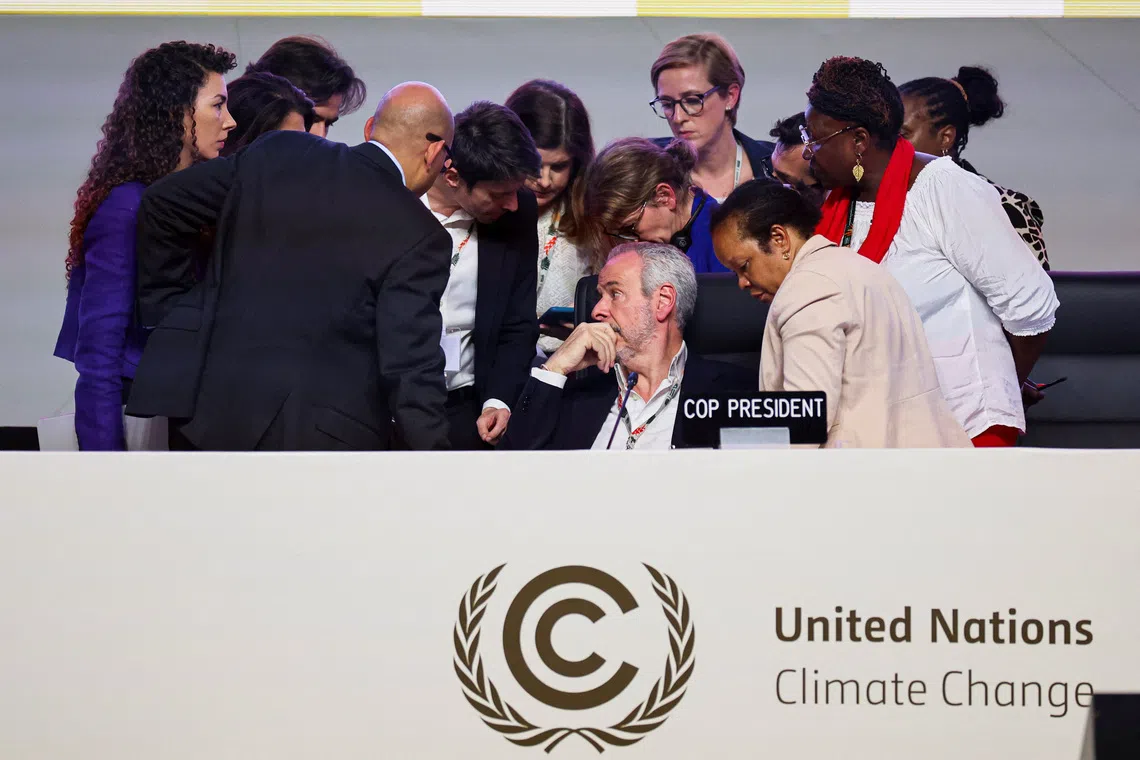The 30th Conference of the Parties (COP30) to the UN climate summit in Belem, Brazil, concluded in November 2025, revealing the precarious state of global climate cooperation. Despite intense negotiations that stretched into extra hours, a final deal was struck among nearly 200 nations, yet its content and the arduous process underscored deep international divisions rather than unwavering unity against climate change.
The Shadow of U.S. Disengagement
A significant factor contributing to the summit's fraught atmosphere was the conspicuous absence of the United States. Under President Donald Trump's administration, which had publicly dismissed global warming as a hoax and international climate action as an economic liability, the world's largest historic emitter and top economy did not send a formal delegation. This vacuum was keenly felt by delegates. EU climate chief Wopke Hoekstra highlighted the immense challenge of building consensus without Washington's leadership, historically a key driver alongside the EU for ambitious clean energy transitions. He described the U.S. withdrawal as "a major blow" to global efforts.
A Deal Forged in Division
The two-week conference was marred by dramatic disagreements, protests, and last-minute negotiations. Indigenous activists demonstrated at the gates, Panama denounced the talks as a "clown show," and the closing ceremony faced delays as host Brazil struggled to resolve objections.
Ultimately, the approved language included a crucial win for developing nations: a commitment to triple funding for climate adaptation. These funds are vital for poorer countries to bolster their defenses against escalating climate impacts like rising sea levels, heatwaves, and severe storms.
However, a major point of contention remained unresolved. Despite strong pushes, particularly from the EU, to include language clarifying a global transition away from fossil fuels, the final text conspicuously avoided this mention. This omission was largely attributed to the persistent demands of Saudi Arabia, a major oil producer, which reportedly threatened to collapse the deal if its industry was targeted. Panama's negotiator, Juan Carlos Monterrey, sharply criticized this outcome, stating that a climate decision unable to name fossil fuels was "not neutrality, it is complicity." Furthermore, efforts to protect forests, despite Brazil hosting a "Forest COP," were also deemed inadequate, adding to the widespread dissatisfaction.
Voices of Frustration and Hope
Reactions to the Belem accord were starkly divided. Ilana Seid, chair of the Alliance of Small Island States (AOSIS), welcomed the deal as a "win" for multilateralism and a chance to uphold the Paris Agreement's goals, particularly due to the adaptation funding. This perspective highlighted the pragmatic gains made by vulnerable nations.
Conversely, others viewed the deal as a significant disappointment. Former U.S. Vice President Al Gore framed it as merely "the floor – the bare minimum" of what's needed, emphasizing the deep influence of oil-producing states. He noted, however, that while petrostates could veto diplomatic language, they couldn't stop real-world action, pointing to Brazil's initiative, backed by over 80 countries, to develop a fossil fuel phase-out roadmap. Aleksandar Rankovic of The Common Initiative think tank offered a blunt assessment, calling the talks "opaque, procedurally questionable, substantially empty, but dressed up as the pinnacle of multilateralism."
The Road Ahead
The COP30 deal sets the stage for further challenges. Brazil's presidency will be crucial in the coming months as it leads efforts to draft the fossil fuel phase-out roadmap and mobilizes the promised finance for developing nations. The true endurance of international climate cooperation will undoubtedly be tested as the world grapples with the escalating urgency of climate change amidst persistent geopolitical and economic divides.

